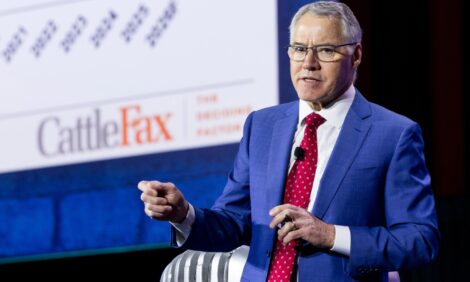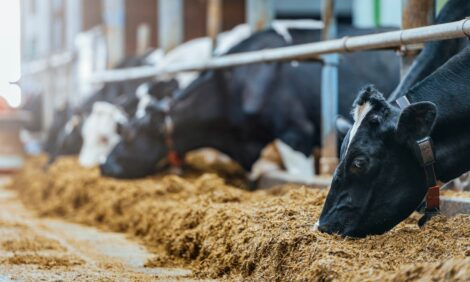



Supreme Court deals major blow to US pork and ag sector
U.S. Supreme Court upheld California Prop 12, rejecting an industry challengeThe US Supreme Court upheld California’s new humane-pork law, rejecting an industry challenge in a ruling buttressing the power of states to impose rules that have a broad economic impact on other parts of the country. The ruling could force pork producers to implement costly changes to keep selling in the country’s most populous state.
The decision of the court was 5-4, with Chief Justice John Roberts and Justices Samuel Alito, Brett Kavanaugh and Ketanji Brown Jackson dissenting.
Justice Neil Gorsuch announced the judgment of the Court and delivered the opinion of the Court, stating "Recently, California adopted just such a law banning the in-state sale of certain pork products derived from breeding pigs confined in stalls so small they cannot lie down, stand up, or turn around. In response, two groups of out-of-state pork producers filed this lawsuit, arguing that the law unconstitutionally interferes with their preferred way of doing business in violation of this Court’s dormant Commerce Clause precedents. Both the district court and court of appeals dismissed the producers’ complaint for failing to state a claim. We affirm. Companies that choose to sell products in various States must normally comply with the laws of those various States. Assuredly, under this Court’s dormant Commerce Clause decisions, no State may use its laws to discriminate purposefully against out-of-state economic interests. But the pork producers do not suggest that California’s law offends this principle. Instead, they invite us to fashion two new and more aggressive constitutional restrictions on the ability of States to regulate goods sold within their borders. We decline that invitation. While the Constitution addresses many weighty issues, the type of pork chops California merchants may sell is not on that list."
Essentially, the Supreme Court ruled that the case was properly dismissed by lower courts. Pork producers say the law will force industry-wide changes and raise the cost of pork products nationwide.
California’s law requires more space for breeding pigs, moving the industry from 16-18 square feet to at least 24 square feet of space. Pork producers say they will be forced to change its practices even though pork is produced almost entirely outside California.
The case before the court involved California’s Proposition 12, which voters passed in 2018. It said that pork sold in the state needs to come from pigs whose mothers were raised with at least 24 square feet of space, with the ability to lie down and turn around. That rules out confined “gestation crates,” which are metal enclosures that are common in the pork industry and designed to keep sows, baby piglets and workers safe.
The Biden administration had urged the justices to side with pork producers, telling the court in written filings that Proposition 12 would be a “wholesale change in how pork is raised and marketed in this country” and that it has “thrown a giant wrench" into the nation's pork market.
The National Pork Producers Council and the American Farm Bureau Federation sued, saying that while Californians consume 13% of the pork eaten in the United States, nearly 100% of it comes from hogs raised outside the state, mostly in the Midwest and North Carolina. The vast majority of sows, meanwhile, are not raised under conditions that would meet Proposition 12′s standards.
The NPPC posted the following on their website in response to the ruling: “We are very disappointed with the Supreme Court’s opinion. Allowing state overreach will increase prices for consumers and drive small farms out of business, leading to more consolidation. We are still evaluating the Court’s full opinion to understand all the implications. NPPC will continue to fight for our nation’s pork farmers and American families against misguided regulations,” Scott Hays, NPPC president and Missouri pork producer.
In an email statement, American Farm Bureau Federation President Zippy Duvall said, “AFBF is disappointed in the closely divided Supreme Court ruling on California’s Proposition 12. At the heart of this argument is whether one state can set the rules for the entire country. The arbitrary standards take away flexibility to ensure hogs are raised in a safe environment. Prop 12 will cause further consolidation in agriculture nationwide and lead to higher pork prices at the grocery store for America’s families. This law will ultimately harm consumers, farmers and animals.”
US senator from Iowa (the #1 pork producing state in the US) and member of the Senate Agriculture Committee, Joni Ernst (R-Iowa) reacted by posting the following on Twitter: "Extremists in liberal states like California shouldn’t be allowed to BAN OUR BACON and punish hardworking Iowa pork producers with overreaching policies. Disappointed in SCOTUS decision on Prop 12. I’ll keep fighting for #Iowa farmers!"
Pork producers argue that 72% of farmers use individual pens for sows that do not allow them to turn around and that even farmers who house sows in larger group pens do not provide the space California would require.
They also say that the way the pork market works, with cuts of meat from various producers being combined before sale, it is likely all pork would have to meet California standards, regardless of where it is sold. Complying with Proposition 12 could cost the industry $290 million to $350 million, they said.
Note: Some of this information came from the Associated Press.
Read the full Supreme Court ruling.




